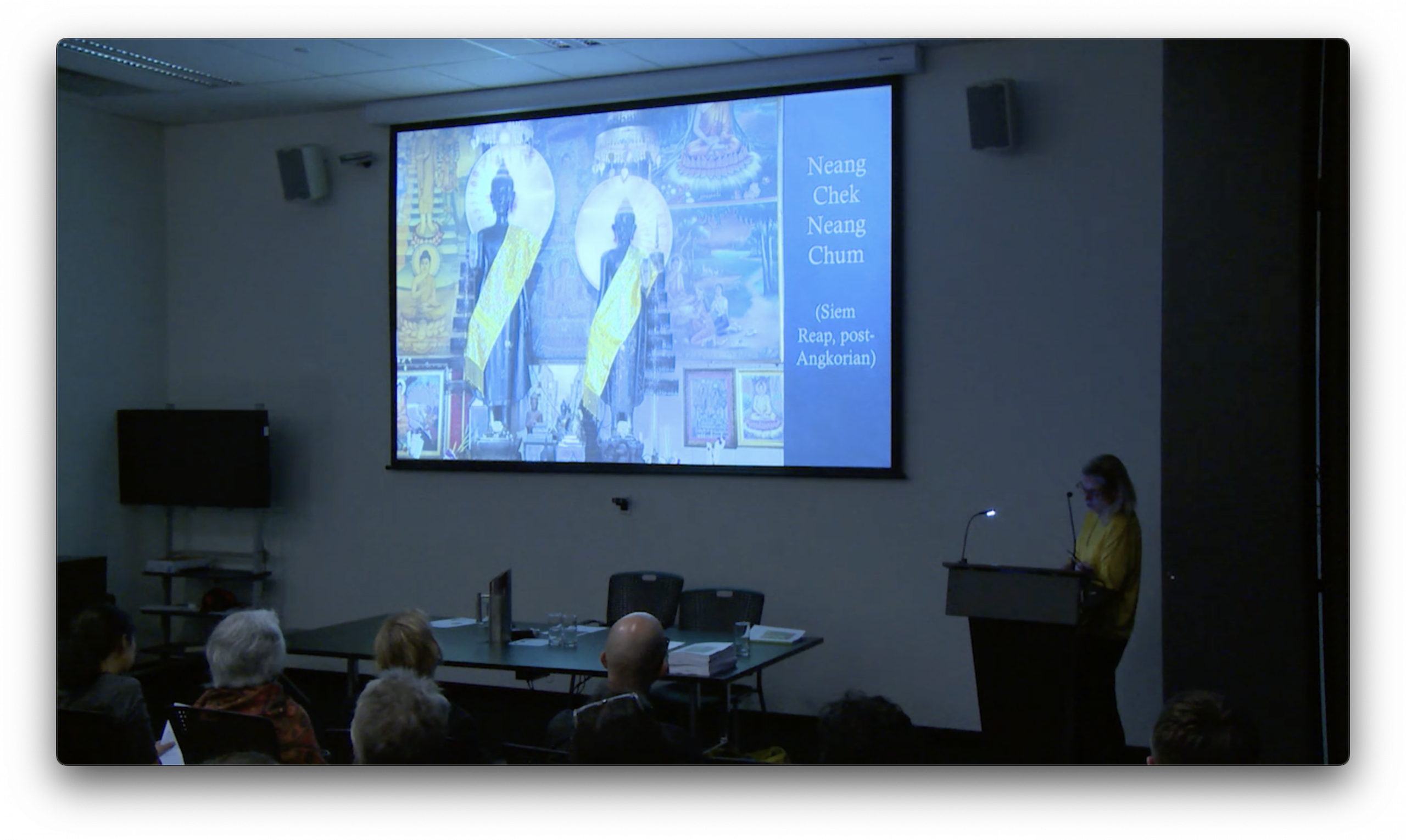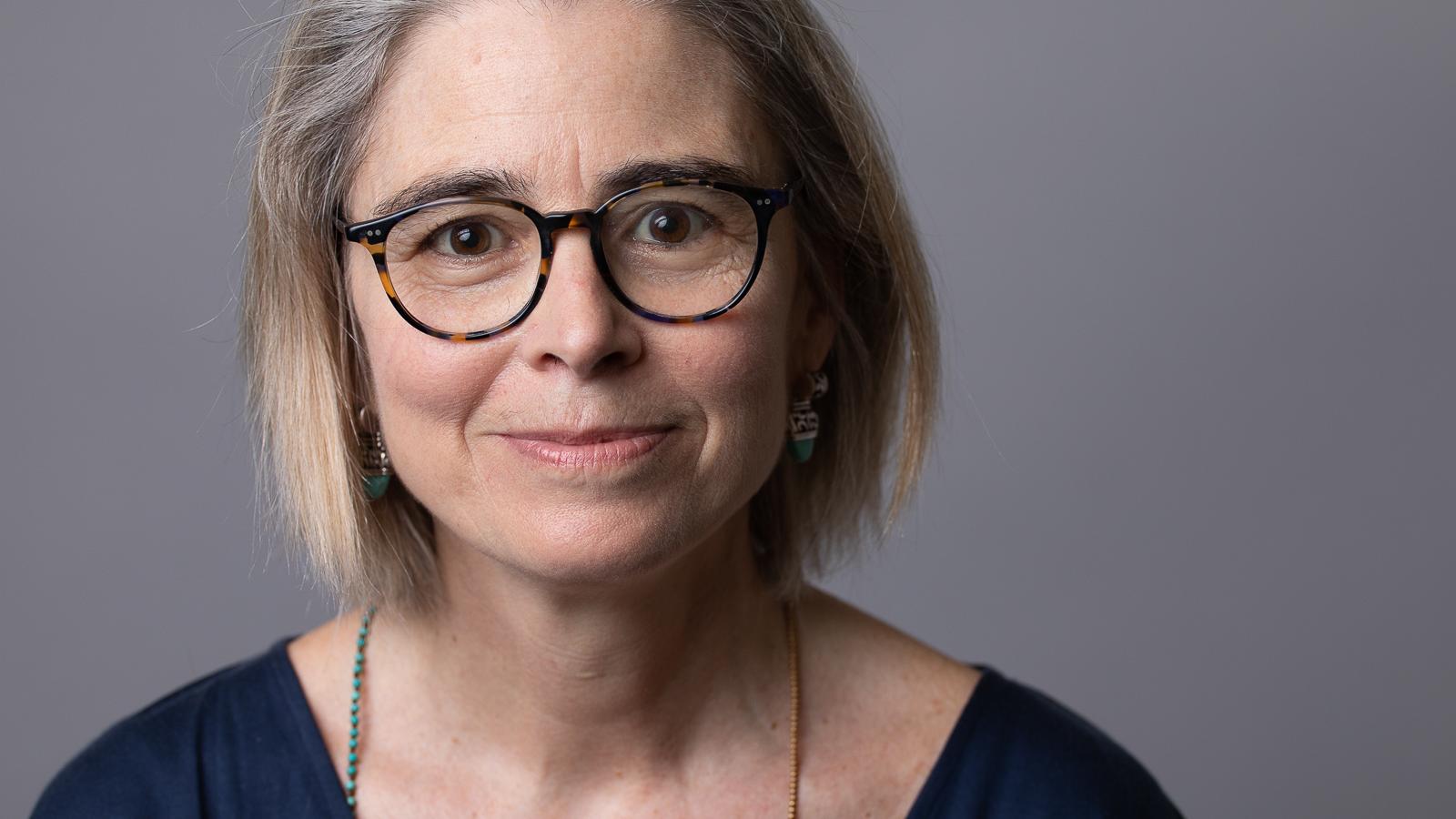Figuring the Buddha

A lecture examining the historical unfolding of the Buddha’s story in Cambodia.
Siddhartha Gotama is a model of sovereign monarchical power, but also, and inseparably, of heteronormative masculine privilege: a princely power and privilege that is represented by the Buddhist canon in patriarchical, phallocratic and starkly gendered terms: wife, child, harem, prostitutes, and of course kingdom, are his to dispose of as he wishes. But in a supremely ambivalent gesture, the future Buddha leaves behind the many subaltern women who literally define his princely existence to seek a new transcendent state. Is this a protofeminist act or simply another in the apparently limitless reinventions of phallocentrism? Women are, to begin with, so many foils – the condition of possibility – for this model man to surpass himself in obtaining perfection. Once the Buddha becomes Enlightened, however, his historical subjectivity, experienced and exposed as an artifice, is transformed and subsumed into the manifestation of a cosmic order: in the place of his self comes the paradoxical concept of the non-self. Thus, in the body of the Buddha, the ultimate realization of masculine domination meets its own deconstruction: the Buddha can be variously characterized, in textual, visual and ritual terms, as hyper-masculine, effeminate, feminine, or beyond binary. This lecture examines the historical unfolding of the Buddha’s story in various Cambodian contexts. Statuary and performance art emerge as privileged media by which to challenge societal constraints.
Part of the Gender in Southeast Asian Art Histories symposium, which is convened by Yvonne Low, Roger Nelson, Clare Veal, and Stephen Whiteman. The event is generously supported by the Asian Studies Association of Australia, the Power Institute, the Sydney Southeast Asia Centre, the School of Literature, Art and Media and Faculty of Arts and Social Sciences at the University of Sydney.
People

Ashley Thompson
Ashley Thompson is Hiram W. Woodward Chair in Southeast Asian Art at the School of Oriental and African Studies (SOAS), University of London. She is a specialist in Southeast Asian cultural histories, with particular expertise on Cambodia. Thompson is co-founder and editor (with Ang Choulean) of Udaya, a tri-lingual journal of Khmer Studies. Her publications include Engendering the Buddhist State: Territory, Sovereignty and Sexual Difference in the Inventions of Angkor (2016); Angkor: A Manual for the Past, Present and Future (with E. Prenowitz and Ang Choulean, 2006); Calling the Souls: A Cambodian Ritual Text (2005); and Dance in Cambodia (with T. Shapiro-Phim, 1999). Thompson was Historical and Linguistic Director for the Khmer language production of Hélène Cixous’ epic ‘Cambodia’ play, The Terrible but Unfinished Story of Norodom Sihanouk, King of Cambodia, first staged in Europe in 2013, by a 32-member Cambodian troupe from Phare Ponleu Selpak (Battambang) directed by Georges Bigot and Delphine Cottu under the aegis of Ariane Mnouchkine’s Théâtre du Soleil, Paris.

